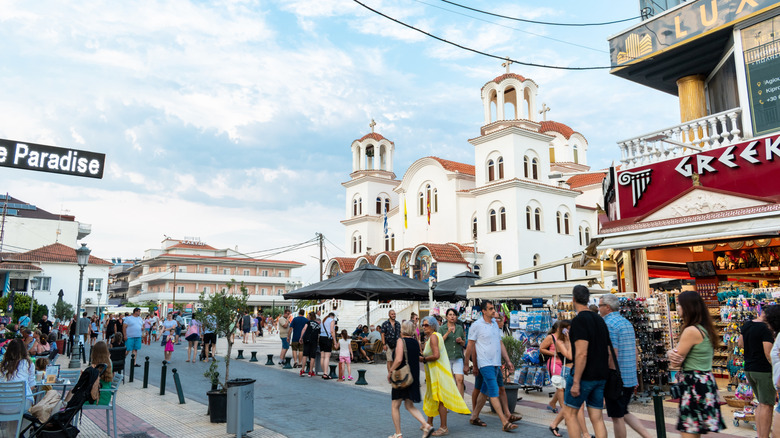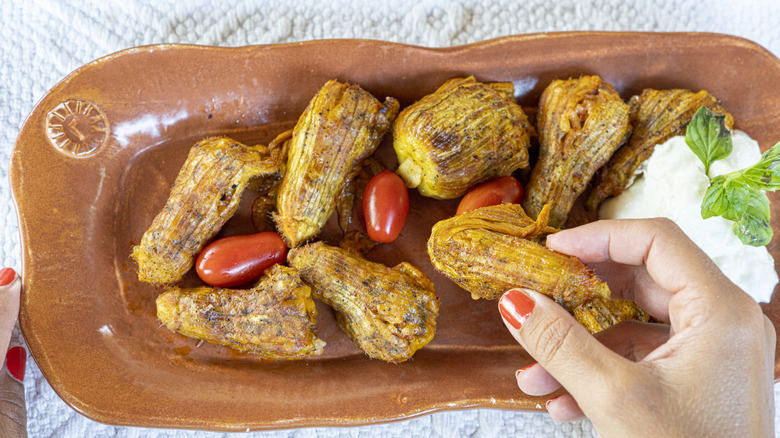Free Foods Tourists Can Get When Visiting Greece
Greece is one of the cheapest island destinations for a vacation. So if you visit, you should know about kerásma, a free little treat you can get at the end of a meal. This treat is usually something simple, like a spoon sweet (which is usually fruit cooked in syrup, and sometimes served in a glass of cold water), some fresh fruit, or a small dessert made in the kitchen. Kerásma is a way of making guests feel cared for, so everyone leaves happy. Giving spoon sweets to visitors is an old tradition in Greece, and that's why kerásma is still common today.
Kerásma is something you often see in Greece, but it's not promised every time, and it changes depending on where you are. In one place, the free treat might be a spoon sweet made with citrus or grapes. In another, it could be quince or sour cherry. Some Greek islands are known for their own special types of kerásma. For example, Andros is known for citrus blossoms; Chios for grape, fig, and mandarin; Santorini for tomato; and Aegina for pistachio. Yet, the main point stays the same; you get a small treat at the end of your meal to show you are a guest. At home, people serve it in a formal way, a spoonful on a small plate with a glass of cold water.
Tsipourádika: order a drink, meze follows
In the small taverns called tsipourádika, especially in Volos, things are simple. You order a glass of tsípouro, which is a grape spirit, and each time you get a drink, the place brings you a plate of appetizers without you having to order food. Diners can choose if they want their tsípouro with anise — for a light licorice note — or without it.
Often in Volos, a small bottle of about 200 milliliters comes with a free plate of small bites called mezedes, usually three or four different snacks. It can also be 50 or 25 milliliters, depending on the location. You can keep ordering more rounds and get more food as long as you stay. This tradition is less about eating a big meal and more about sharing food and drinks in a relaxed, social way. In Volos, there are almost 600 of these small places where people gather, and these spots are an important part of local life.
Free appetizers, called meze, are served only when you order tsípouro, which is the custom in these taverns. If you order wine or beer instead, you usually will not get the same free dishes. In Volos, meze plates often start with seafood, such as octopus, sardines, mackerel, calamari, and mussels. You might also get pickled peppers, leafy greens, olives, and spreads such as taramosalata. When you order more drinks, the snacks may get richer or a bit more special.
How to get the freebies without being awkward
Before you order, ask how the house serves meze. In Crete, you often get a free glass of tsikoudiá (raki) at the beginning or end of your meal. This is why you need to confirm how things work before you order food, especially if you want the full meze experience. Take a cue from the locals who order only drinks and let the kitchen bring out the food. You will get at least one meze plate with each serving, and often more in the first round. Each place has its own way of serving, and some taverns will let you switch out a plate if you do not want it.
Note that if you have any allergies or foods you do not like, tell the staff right away, so they can change the set lineup for you. Also, treat the freebies as a gift from the house, not something you are owed. If you do not want more food or do not drink spirits, it is fine to say no politely. A simple "efcharistó, óchi efcharistó" (thank you, no thank you) works. This is also vital if you see Greece as one of the best places to retire outside the United States – or you plan to visit Santorini, a vacation spot that may not be worth the cost. If you want to get along with the locals, then being polite (especially when receiving freebies) is essential.


